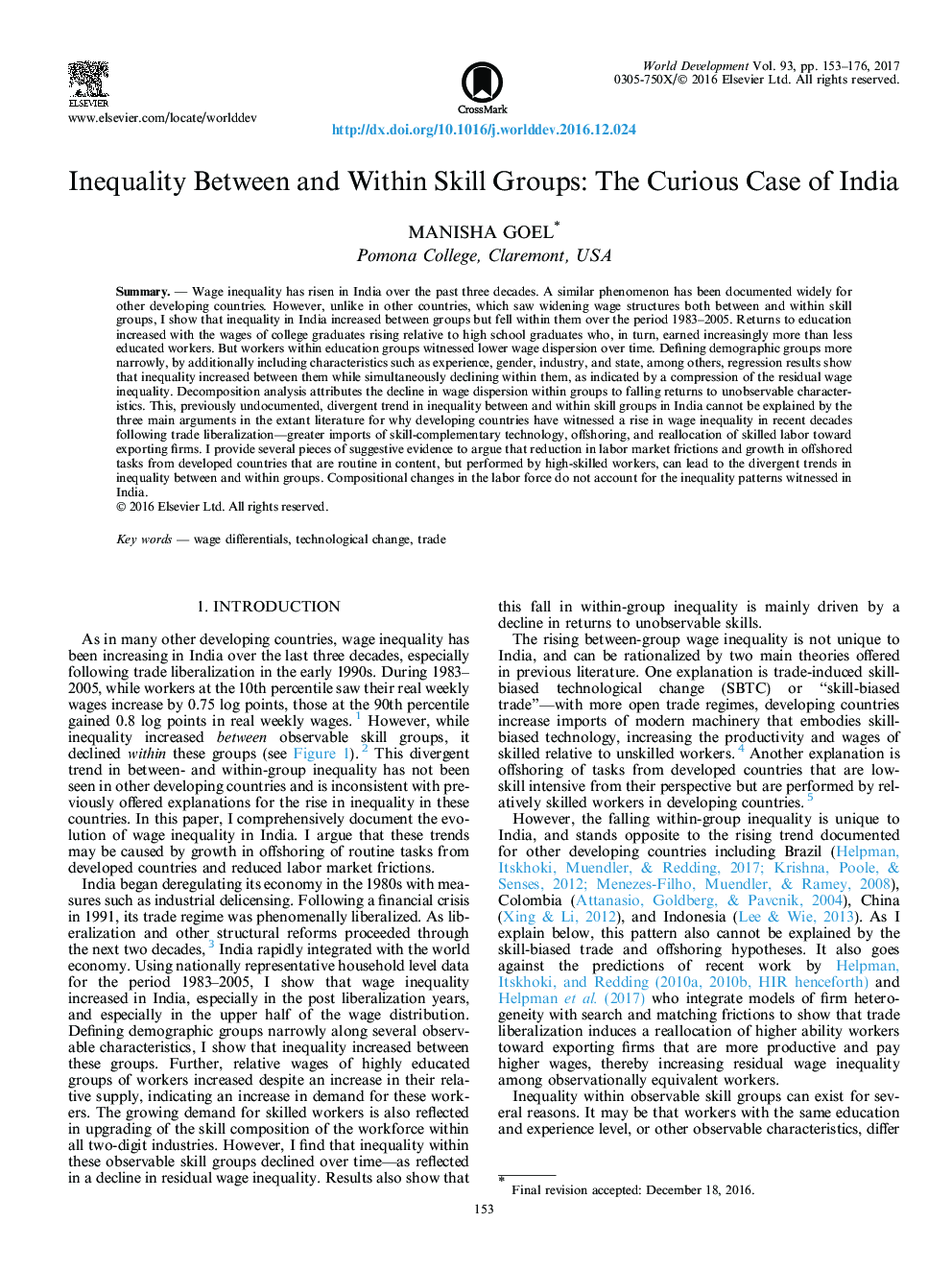| Article ID | Journal | Published Year | Pages | File Type |
|---|---|---|---|---|
| 5105299 | World Development | 2017 | 24 Pages |
Abstract
Wage inequality has risen in India over the past three decades. A similar phenomenon has been documented widely for other developing countries. However, unlike in other countries, which saw widening wage structures both between and within skill groups, I show that inequality in India increased between groups but fell within them over the period 1983-2005. Returns to education increased with the wages of college graduates rising relative to high school graduates who, in turn, earned increasingly more than less educated workers. But workers within education groups witnessed lower wage dispersion over time. Defining demographic groups more narrowly, by additionally including characteristics such as experience, gender, industry, and state, among others, regression results show that inequality increased between them while simultaneously declining within them, as indicated by a compression of the residual wage inequality. Decomposition analysis attributes the decline in wage dispersion within groups to falling returns to unobservable characteristics. This, previously undocumented, divergent trend in inequality between and within skill groups in India cannot be explained by the three main arguments in the extant literature for why developing countries have witnessed a rise in wage inequality in recent decades following trade liberalization-greater imports of skill-complementary technology, offshoring, and reallocation of skilled labor toward exporting firms. I provide several pieces of suggestive evidence to argue that reduction in labor market frictions and growth in offshored tasks from developed countries that are routine in content, but performed by high-skilled workers, can lead to the divergent trends in inequality between and within groups. Compositional changes in the labor force do not account for the inequality patterns witnessed in India.
Related Topics
Social Sciences and Humanities
Economics, Econometrics and Finance
Economics and Econometrics
Authors
Manisha Goel,
